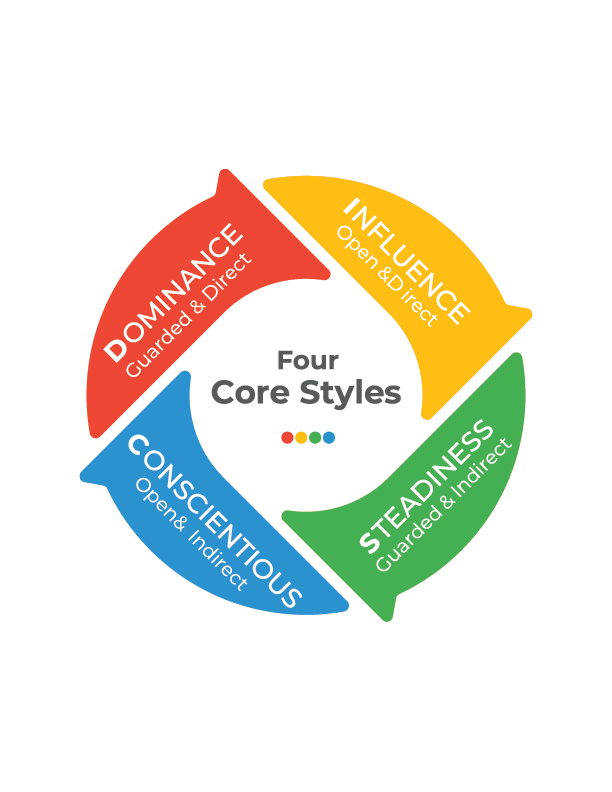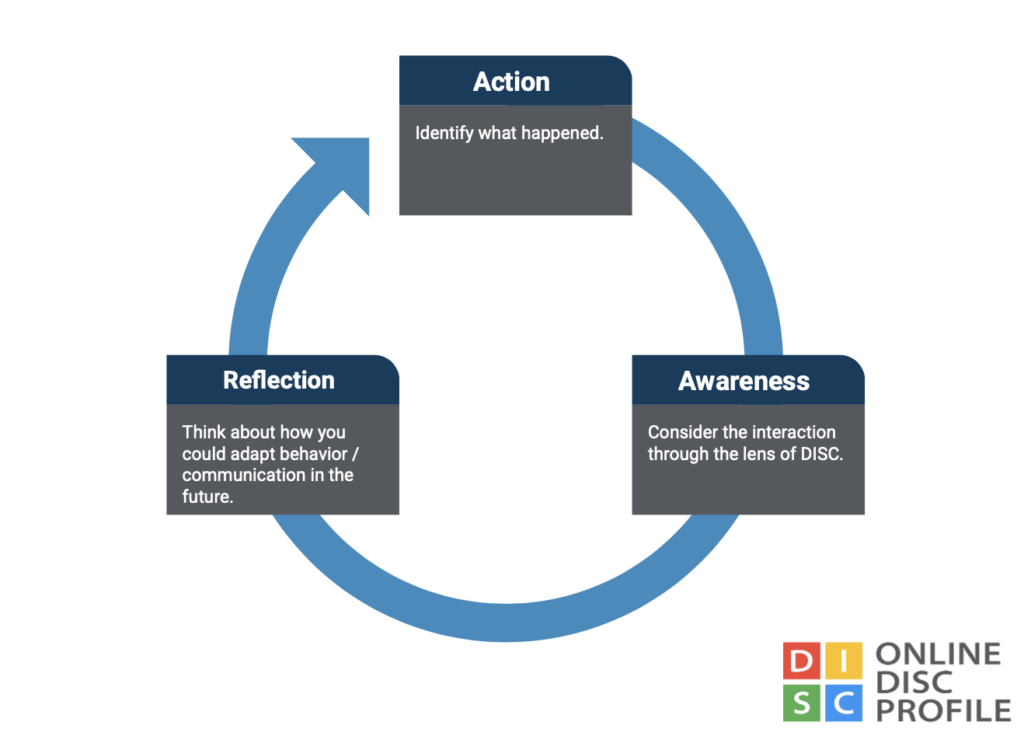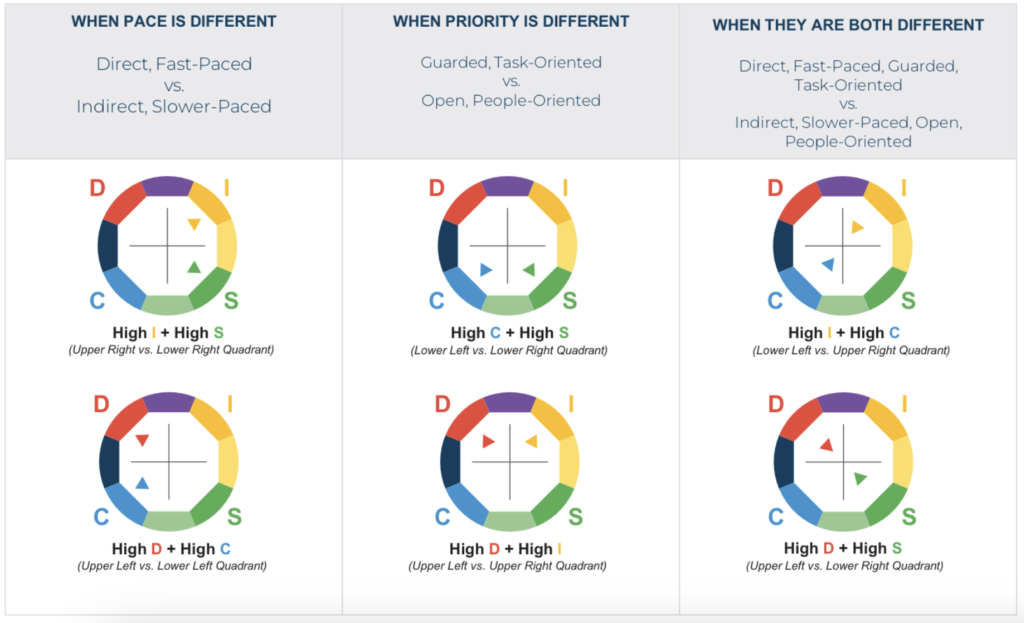How DISC Personality Assessments Are Used in Team Coaching
Adam Stamm
Managing Partner: Online DISC Profile
The Ultimate Guide on Using DISC in Team & Professional Coaching
Miscommunication is the most common workplace issue.
When someone is a poor communicator, it often slows or stops their professional growth, disrupting teamwork and even organizational goals.
DISC personality assessments are often used in professional coaching because they offer an easy-to-use model for understanding interpersonal communication. DISC Coaching can help individuals recognize how they must adapt their communication depending on who they speak with. The process can help any individual understand what stresses them at work.
Working with a professional DISC coach is a foundational step for anyone who wants to improve their performance through better communication and self-awareness to advance their professional career.
This guide was written to help anyone who wants to understand how DISC can support the development of their clients or individuals within their organization. In addition, I also share what the process looks like and associated costs incase this article is read by any professional who believes they need to improve how they communicate and relate to those around them.
Before we start, it’s important to note that this article is written for readers with an introductory knowledge of DISC.
If you are new to DISC and want to learn more about the model, consider taking our free DISC Assessment or reading our guide ‘What is DISC?” to better understand the model and theory.

The Benefits of Using DISC for Coaching
The renowned executive coach Marshall Goldsmith wrote a compelling book titled “What Got You Here Won’t Get You There.” In it, Goldsmith outlines how today’s success can be a poor indicator of future success.
Goldsmith wasn’t explicitly talking about how we interact with others, but his concepts can easily apply to our interpersonal relationships.
Consider the experience of going from an individual contributor to managing a team. As an individual, you are responsible for yourself, so you only need to consider your behavior and the relationship with your boss. However, as a manager, you have multiple layers of relationships now that you need to consider, and if you don’t adopt a flexible way of communicating, you won’t be effective.
DISC provides a lens through which you can navigate the various relationships in your life. When using DISC with a concept called the Platinum Rule (Treat others as they wish to be treated), you can more easily navigate tricky social interactions.
However, coaches can use many different types of behavioral models. We find that many coaches use DISC because the model is easy to remember and, therefore, more easily to use. Compared to MBTI, DISC provides substantial information into why interpersonal conflict exists without a complicated model.
How DISC is used in Coaching

When someone completes a DISC Assessment, they are offered a key to understanding some of their personality’s complexities and traits.
The full DISC Profile helps you understand your behaviors, motivators, and stressors. This information is crucial for taking the first step in developing greater self-awareness.
However, the next step is crucial for applying the profile’s insights: discussing its content with someone and asking how they see those insights showing up at work or in other aspects of life.
This step is imperative because DISC isn’t something you do to someone or yourself; you must use it with others. Below are ways in which DISC can be used to help use DISC with others.
Using DISC For Manager Development
We wrote earlier how going from an individual contributor to a manager is a difficult process because it requires adapting communication to meet the needs of multiple layers of relationships.
In fact, most managers don’t feel prepared to manage. Gallup has watched Manager engagement levels for years, and the trend is disappointing, to say the least. Overwhelmingly, managers are disengaged in their jobs. While it would be irresponsible to say that interpersonal issues are the sole cause of this trend, social issues are frequently the source of conflict (outside of organizational strategy/technology / etc.).
Managers who successfully navigate how to communicate with their reports lead more engaged teams.
Using DISC To Resolve Interpersonal Conflict
The DISC model can quickly identify behavioral styles that frequently conflict.
Below are the various styles most often in conflict because of their differing priorities. Coaches who use DISC can quickly identify these situations and call out the behavioral differences and different needs.

DISC and 360 Assessments
One of the most common ways to start a coaching engagement is with a 360-degree feedback assessment and coaching session.
DISC pairs well with a 360 assessment because it can support the feedback that is being reported. For example, if someone is rated low for being friendly or social, people may confirm the individual’s C-Personality Type.
Coaching Each Individual DISC Personality Type
While DISC is often used to benefit the learner, coaches can use the same information to support how they coach. Using the DISC Model, they can adapt their behavior to meet the needs of the individuals they are coaching. Below are examples for each of the four primary DISC Profiles.
Coaching the D Personality Type
Here are some ways on how a coach might work with someone who has a D style on the DISC model:
- Be direct with feedback. People with a D style appreciate direct communication. They don’t like to beat around the bush, so a DISC Coach will be upfront with them about their expectations and feedback.
- Give them challenging tasks. People with a D style are motivated by challenges and results. A coach may give them a task that will stretch them and allow them to achieve something meaningful.
Here are some specific coaching techniques that are used with individuals with the D-Personality Type.
- Use “what” and “how” questions. People with a D style are action-oriented. Coaches will frame questions to help them brainstorm solutions and take action. For example, instead of asking, “Why did you do that?” they may ask, “What were you thinking when you did that?” or “How could you have done that differently?”
- Set clear goals and deadlines. People with a D style need to know what they are working towards and when they need to achieve their goals. When working with someone who has the D-Style, a coach will set clear goals and deadlines with them to match their behavioral needs.
- Provide regular feedback. People with a D style appreciate feedback, so be sure to give them regular feedback on their performance. Feedback should be specific, timely, and constructive.
Coaching the I Personality Type
Here are ways a professional coach may work with someone with the I-Personality Type.
- Build rapport. People with an I personality type are relationship-oriented. The coach will likely work to establish a personal rapport. Once established, they can build on that connection to work towards set goals.
- Help them stay focused. People with an I personality type can sometimes be sidetracked by their emotions or by new ideas. The coach will work on helping them stay focused on their goals and achieve their objectives.
Here are some specific coaching techniques that a coach may use with people who have an I personality type:
- Use open-ended questions. People with an I personality type are creative and enjoy brainstorming. Coaches may use open-ended questions to encourage them to share their ideas and devise solutions.
- Be flexible. People with an I personality type can sometimes be spontaneous. A coach may engage with more flexible coaching sessions and be willing to change plans to ensure overall objectives are achieved rather than individual goals.
- Help them set boundaries. People with an I personality type can sometimes overextend themselves. A coach will likely work with them to set boundaries so they don’t take on too much and burn themselves out.
Coaching the S Personality Type
Here are a few ways a coach may work with someone who has an S style on the DISC model:
- Be patient and understanding. People with an S personality type prefer working steadily and predictably, so they may not be as quick to adapt to change as other personality types. A coach may show more patience with them and understand their need for stability.
- Be supportive and encouraging. People with an S personality type are motivated by cooperation and support. A coach will adjust their interactions to be more supportive of the coachee’s efforts and encourage them to take on new challenges.
Here are some specific coaching techniques that a coach may use with people who have an S personality type:
- Use active listening skills. People with an S personality type appreciate being heard. A coach will need to use their Connective Listening Style to show they are listening and understanding their coachee’s concerns.
- Ask open-ended questions. People with an S personality type are thoughtful and reflective. A coach may ask open-ended questions to encourage them to share their thoughts and ideas.
- Provide positive reinforcement. People with an S personality type are motivated by positive reinforcement. A coach will provide positive feedback when they do a good job.
- Be patient. People with an S personality type can sometimes be slow to warm up to new people. A coach may take things slow at first to allow them to get to know you before they start opening up.
Coaching the C Personality Type
Here are a few ways a coach may work with someone who has a C style on the DISC model:
- Be specific and clear. People with a C personality type appreciate clear and concise communication. A coach will provide specific, detailed instructions and expectations and avoid using vague or ambiguous language.
- Provide data and evidence. People with a C personality type are motivated by logic and reason. A coach will likely ensure they can provide data and evidence to support any claims and avoid making emotional appeals.
Here are some specific coaching techniques that might be used with people who have a C personality type:
- Use “why” questions. People with a C personality type are analytical and detail-oriented. A coach might ask “why” questions to encourage them to think critically and explore the root cause of problems.
- Set clear goals and deadlines. People with a C personality type need to know what they are working towards and when they need to achieve their goals. A DISC Certified coach will make sure to set clear goals and deadlines with them so that they can stay focused and motivated.
- Be respectful of their need for time and space. People with a C personality type often fall on the introversion scale. A coach may ensure they aren’t overwhelming them with too much information and will work in time to allow the coachee to process what they’ve heard.
These techniques are geared toward helping coaches develop a starting point with their clients.
However, there are many more aspects to coaching beyond DISC. We want to encourage our readers to check out the Leadership Development Institute for additional coaching information on how their coaches approach the coaching process.
DISC and 360 Assessments
Professional coaching is a vast field. Therefore, coaches need many different tools to support the professional development of their coachees.
One tool often used in coaching is a 360-degree assessment. We have frequently used 360-degree assessments in addition to DISC during our coaching sessions.
A 360 Degree Assessment will offer a standardized way to collect feedback on leadership or professional competencies.
Many 360-degree tools are available today. We promote Checkpoint 360 because it offers a pre-set list of competencies to measure a person against, including communication, leadership, adaptability, relationships, and other core concepts needed at work.
The combination of DISC and a 360 is helpful because it offers insights into how others view the individual’s behaviors. With that context in mind, the DISC Profile provides the individual a way to navigate the needs of those with whom they work.
As an example, if a person scored low on “listening to others” and has a strong D-Style, it’s possible that while they are listening, but their D-Style is causing them to take quick action rather than pausing to signal to their co-worker that they are genuinely listening.
In this example, the 360 helps identify the core issues the professional needs to work on, and their DISC Profile helps them identify the common behaviors that might be interfering with their communication issues.

What does a DISC Coaching session cost?
The hiring platform, Indeed, reported that miscommunication is one of the most common workplace issues and could be why someone misses a promotion or professional growth.
For $249 per 45-minute session, our DISC-certified coaches will help you understand your communication preferences and any possible communication barriers you might run into during your work day.
For those who want to go deeper, we offer packages of three coaching sessions (1-hour per month) for $699.
Both packages include access to the DISC Basic full profile ($59 value).
How to start working with a DISC Coach?
There are two steps you need to take to start working with a Certified DISC Coach:

Anyone who wants to connect with a DISC Certified Coach must first complete their DISC Profile.
Don’t worry—this DISC Profile is free to complete. After completing your assessment, you can schedule a coaching session.

The next step after you have completed your free DISC profile is to select the coaching package that fits your needs. There are two packages available:
- Single 45-minute Coaching session: $249
- Three Session Package (three one-hour sessions): $699
What can you expect when working with a DISC Coach?
We will connect you with a certified assessment coach who will work to transform your new DISC insights into tangible, impactful action.
Because each person’s needs are unique, it’s impossible to standardize what will be worked on during each coaching session. However, the ultimate goal is to use the concepts from your DISC Profile to help you overcome a difficulty at work or in your life.

What are the steps to becoming a DISC Certified Coach?
DISC can be a handy tool in the professional development toolkit for anyone who is a certified coach or planning to become an accredited coach.
DISC Basic offers 10 PDCs for anyone with an International Coaching Federation (ICF) coaching credential.
However, you are not required to be a certified coach to teach DISC. We offer a DISC Certification course that will teach you the core concepts of understanding a person’s DISC profile and how to coach them into using it to make foundational changes in their professional life.
What Assessments are Used in DISC Coaching?
DISC Personality Assessments offer a foundational tool for coaching and providing feedback. Below are a few products that can help if you are looking to provide better feedback.






